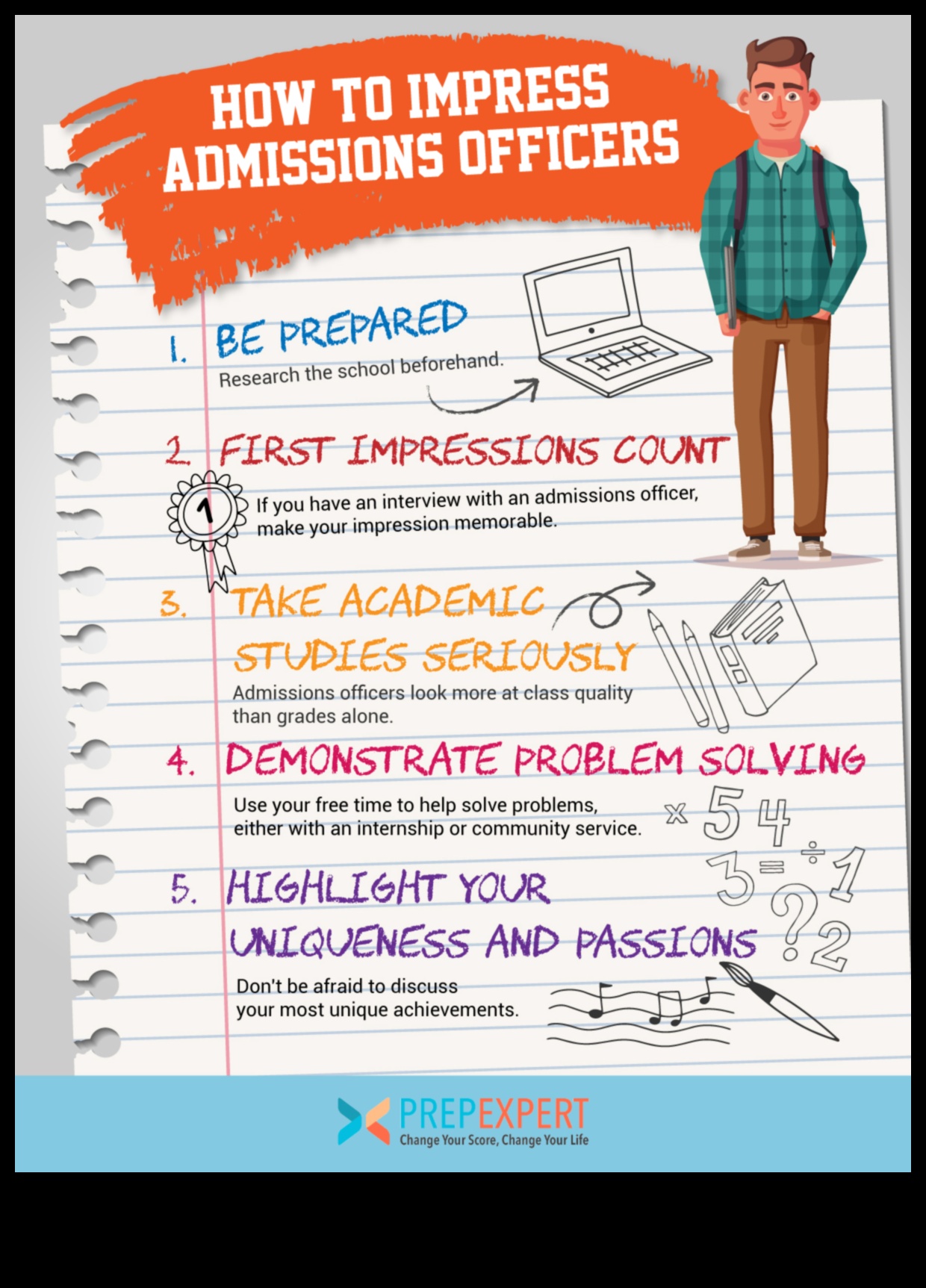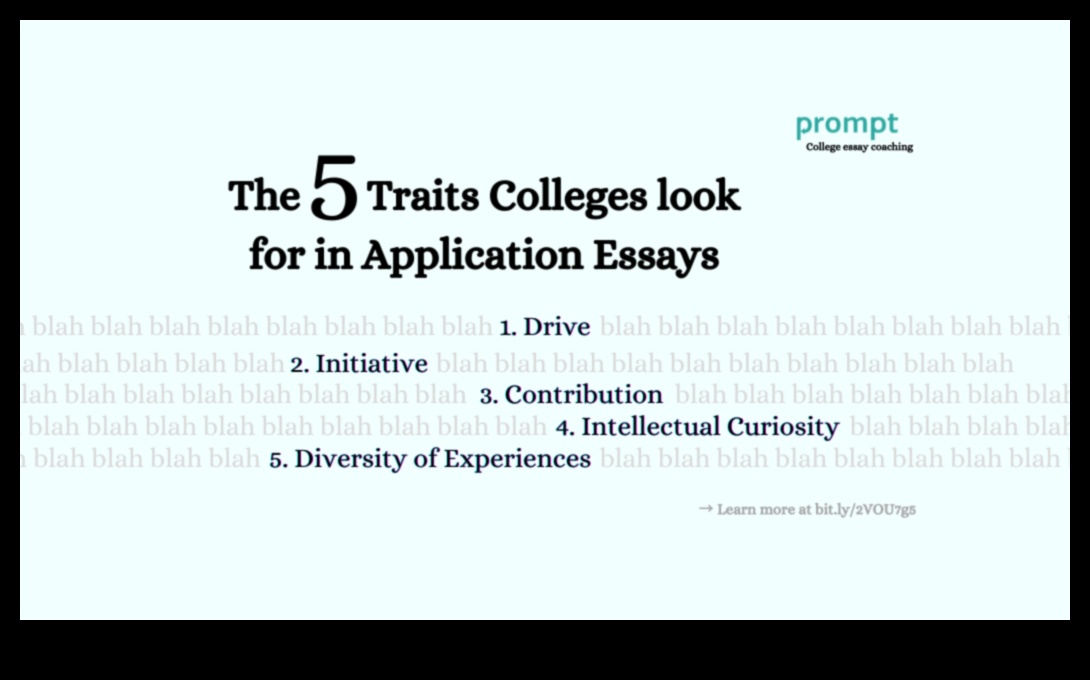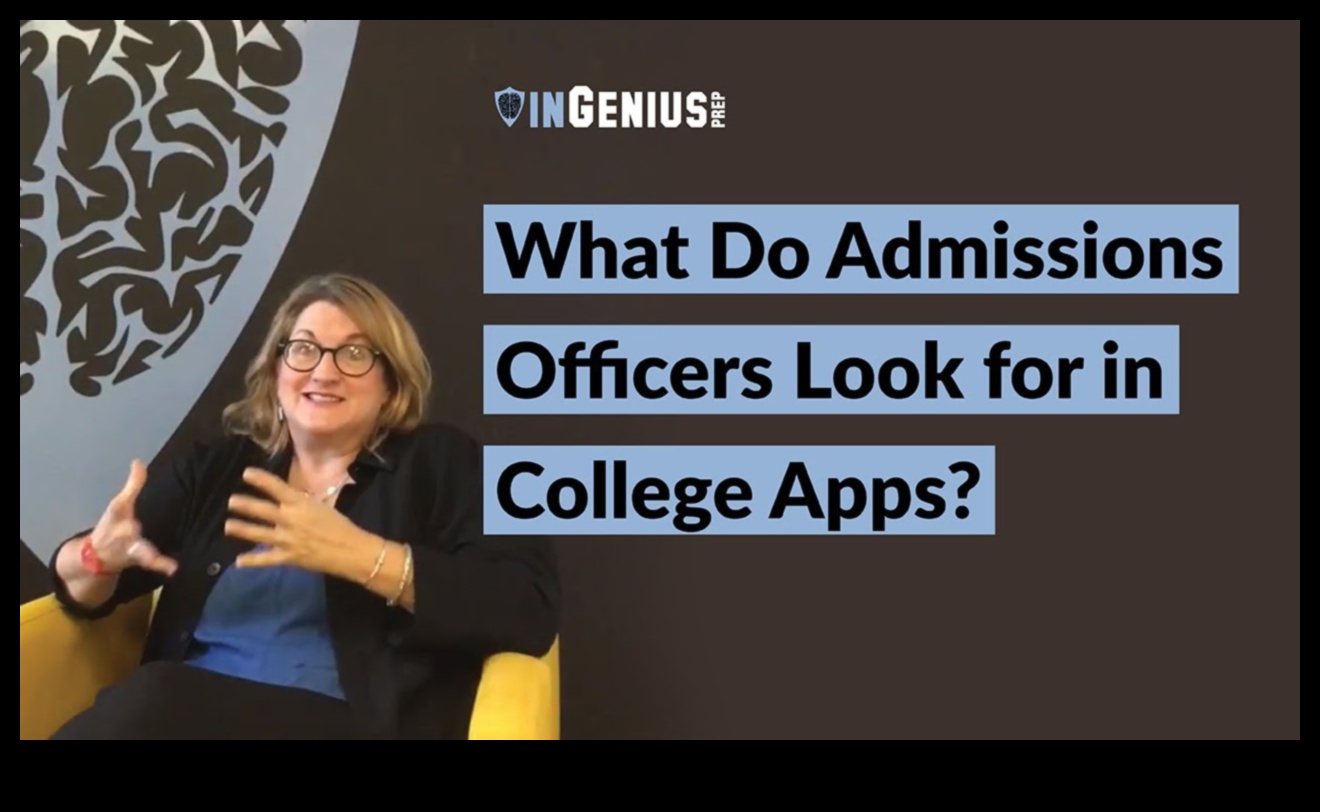
I. The Importance of a Strong Academic Record
II. Extracurricular Activities and Leadership
III. Test Scores
IV. Personal Statements and Essays
V. Recommendations
VI. Interviews
VII. Diversity and Inclusion
VIII. Financial Aid
IX. Early Decision and Early Action
X. FAQ
| Feature | Answer |
|---|---|
| College admissions | The importance of a strong academic record, extracurricular activities and leadership, test scores, personal statements and essays, recommendations, interviews, diversity and inclusion, financial aid, early decision and early action |
| College application | The application process, the application requirements, the application timeline, the application fee, the application essay, the application interview |
| College requirements | The minimum GPA, the required courses, the standardized test scores, the extracurricular activities, the letters of recommendation, the personal statement |
| College essay | The importance of a strong college essay, the different types of college essays, the best way to write a college essay |
| College interview | The importance of a good college interview, how to prepare for a college interview, how to answer common interview questions |

II. Extracurricular Activities and Leadership
In addition to your academic record, college admissions officers will also consider your extracurricular activities and leadership experience. They want to see that you are a well-rounded individual who is involved in your community and who has something to offer the college community.
When evaluating your extracurricular activities, admissions officers will look for a few things:
- The number of activities you are involved in
- The level of commitment you show to each activity
- The leadership roles you have taken on
- The impact you have had on your community
It is important to choose extracurricular activities that you are passionate about and that you will be able to commit to for a long period of time. Admissions officers will be able to tell if you are just joining activities to pad your resume, and they will not be impressed.
When it comes to leadership roles, it is important to remember that it is not about the title of the position, but rather the impact you have made. Admissions officers want to see that you are a leader who is able to motivate others and get things done.
Finally, admissions officers want to see that you have made a positive impact on your community. This could mean volunteering your time, working on a community project, or starting your own organization. Admissions officers want to know that you are a person who cares about others and who is willing to give back.
III. Test Scores
Test scores are an important part of the college admissions process, but they are not the only factor that admissions officers consider. In general, colleges are looking for students who have demonstrated academic ability and potential. This means that they are looking for students who have taken challenging courses in high school and who have achieved high grades.
However, colleges also understand that there are many factors that can affect a student’s academic record, such as socioeconomic status, access to educational resources, and personal circumstances. For this reason, colleges typically take a holistic approach to admissions, and they will consider a variety of factors beyond test scores, such as your extracurricular activities, leadership experience, and personal statement.
That said, test scores can still be an important factor in the admissions process, and it is important to do your best on the tests that you take. The two most important standardized tests for college admissions are the SAT and the ACT. These tests measure your academic ability in reading, writing, and math.
The SAT is a three-hour exam that is administered by the College Board. The ACT is a four-hour exam that is administered by ACT Inc. Both tests are scored on a scale of 1600 to 2400.
When you are preparing for the SAT or ACT, it is important to study for the specific test that you will be taking. There are many resources available to help you prepare for these tests, such as books, online courses, and tutoring.
It is also important to take the SAT or ACT multiple times if you are not satisfied with your first score. You can take the SAT up to three times per year, and you can take the ACT up to five times per year.
The admissions officers at each college will have their own preferences for test scores. Some colleges may place more weight on test scores than others. For this reason, it is important to research the colleges that you are interested in and to find out what their admissions requirements are.
Overall, test scores are an important part of the college admissions process, but they are not the only factor that admissions officers consider. By doing your best on the SAT or ACT and by taking other steps to strengthen your application, you can increase your chances of being admitted to the college of your choice.

IV. Personal Statements and Essays
Personal statements and essays are an important part of the college admissions process, as they allow admissions officers to get to know you as a person and understand your motivations for wanting to attend their school.
Your personal statement should be a well-written, personal reflection on your life and experiences. It should be about 500-650 words long and should focus on one or two specific topics that you feel are important to your identity and your goals.
When writing your personal statement, be sure to:
- Be yourself
- Be specific
- Be concise
- Proofread carefully
Essays are also an important part of the college admissions process. They are typically shorter than personal statements, and they may be used to ask you about specific topics, such as your interests, your goals, or your experiences.
When writing an essay, be sure to:
- Answer the question directly
- Be clear and concise
- Proofread carefully
Your personal statement and essays are an important opportunity to show admissions officers who you are and why you would be a good fit for their school. Take your time writing them, and make sure that they are well-written and reflect your personality and goals.

V. Recommendations
Recommendations are an important part of the college admissions process. They provide admissions officers with an outside perspective on your academic and extracurricular achievements, and can help to paint a picture of who you are as a person.
When writing your recommendations, be sure to ask someone who knows you well and can speak to your strengths and accomplishments. Your recommender should be able to provide specific examples of your work ethic, leadership skills, and character.
It is also important to give your recommender plenty of time to write your letter. A rushed letter will not be as effective as one that is well-written and thoughtful.
Here are some tips for getting the best recommendations possible:
- Choose a recommender who knows you well and can speak to your strengths and accomplishments.
- Give your recommender plenty of time to write your letter.
- Provide your recommender with a copy of your resume and transcripts, as well as any other information that they may need to write your letter.
- Meet with your recommender in person to discuss your application and answer any questions they may have.
By following these tips, you can increase your chances of getting strong recommendations that will help you stand out in the college admissions process.

VI. Interviews
College interviews are a valuable opportunity for you to show admissions officers who you are and why you would be a good fit for their school.
Interviews are typically conducted by current students or alumni, and they last for about 30 minutes.
During an interview, you will be asked questions about your academic interests, extracurricular activities, and personal goals.
You will also be given the opportunity to ask questions about the school.
It is important to be prepared for your interview by doing your research on the school and by practicing your answers to common interview questions.
You should also dress professionally and arrive on time for your interview.
College interviews can be nerve-wracking, but they are also a great opportunity to make a positive impression on admissions officers.
If you approach your interview with confidence and preparation, you will be well on your way to making a great impression.
VII. Diversity and Inclusion
In addition to academic and extracurricular achievements, college admissions officers also consider diversity and inclusion when making admissions decisions. They want to create a student body that is representative of the world at large, and they believe that a diverse student body makes for a more vibrant and stimulating learning environment.
There are a number of ways that colleges can demonstrate their commitment to diversity and inclusion. They may have specific programs or initiatives in place to recruit and retain students fromunderrepresented groups, or they may have a diverse faculty and staff. They may also offer courses or programs that focus on diversity and inclusion, or they may have student organizations that promote these issues.
If you are an applicant from an underrepresented group, you should be aware of the importance of diversity and inclusion in the college admissions process. You should also be prepared to discuss your experiences with diversity and inclusion in your application materials.
Here are some tips for highlighting your commitment to diversity and inclusion in your college applications:
- Write about your experiences with diversity and inclusion in your personal statement or essays.
- Discuss your involvement in diversity and inclusion-related activities in your extracurricular activities section.
- Highlight your knowledge of diversity and inclusion issues in your letters of recommendation.
- If you are invited to an interview, be prepared to discuss your experiences with diversity and inclusion.
By highlighting your commitment to diversity and inclusion in your college applications, you can show admissions officers that you are a well-rounded individual who is interested in making a difference in the world.
VIII. Financial Aid
Financial aid is a major consideration for many college applicants. The cost of college has been rising steadily in recent years, and many families are struggling to afford the high tuition rates. Fortunately, there are a number of financial aid programs available to help students pay for college.
The most common type of financial aid is need-based aid, which is awarded to students who demonstrate financial need. Need-based aid can come from the federal government, state governments, colleges and universities, and private organizations.
Students who are eligible for need-based aid will need to complete the Free Application for Federal Student Aid (FAFSA). The FAFSA is used to determine a student’s financial need and to award federal student aid.
In addition to need-based aid, there are also a number of merit-based scholarships and grants available to students. Merit-based aid is awarded to students who have achieved academic or athletic excellence.
Students should research all of their financial aid options before making a decision about where to attend college. By doing your research, you can find the financial aid that you need to help you pay for college.
IX. Early Decision and Early Action
Early Decision (ED) and Early Action (EA) are two ways to apply to college early. With ED, you commit to attending a college if you are admitted. With EA, you do not have to commit to attending a college if you are admitted.
There are a few key differences between ED and EA. First, ED is binding, while EA is not. This means that if you are admitted to a college through ED, you must attend that college. If you are admitted to a college through EA, you are free to choose whether or not to attend that college.
Second, ED deadlines are earlier than EA deadlines. ED deadlines are typically in November, while EA deadlines are typically in December or January.
Third, ED acceptance rates are lower than EA acceptance rates. This is because colleges have a smaller pool of applicants to choose from when they are making ED decisions.
Finally, ED is more competitive than EA. This is because students who apply ED are more likely to be high-achieving students who are committed to attending a particular college.
If you are considering applying to college early, it is important to weigh the pros and cons of ED and EA carefully. You should also consider your financial situation and your academic and extracurricular profile.
X. FAQ
Q: What are the most important factors that college admissions officers consider?
A: The most important factors that college admissions officers consider include:
- Academic record
- Extracurricular activities and leadership
- Test scores
Q: What are some things that I can do to make my college application stand out?
A: Here are some things that you can do to make your college application stand out:
- Write a strong personal statement
- Get good letters of recommendation
- Demonstrate your interest in the college
Q: How can I find out more about the criteria that college admissions officers use?
A: There are a few ways to find out more about the criteria that college admissions officers use:
- Visit the college’s website
- Talk to current students or alumni
- Read college guidebooks